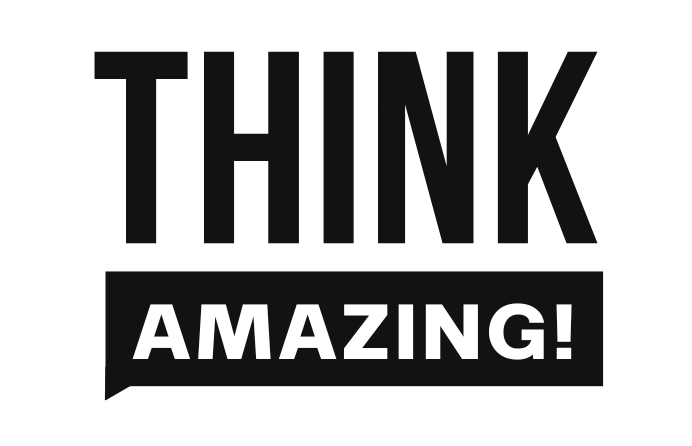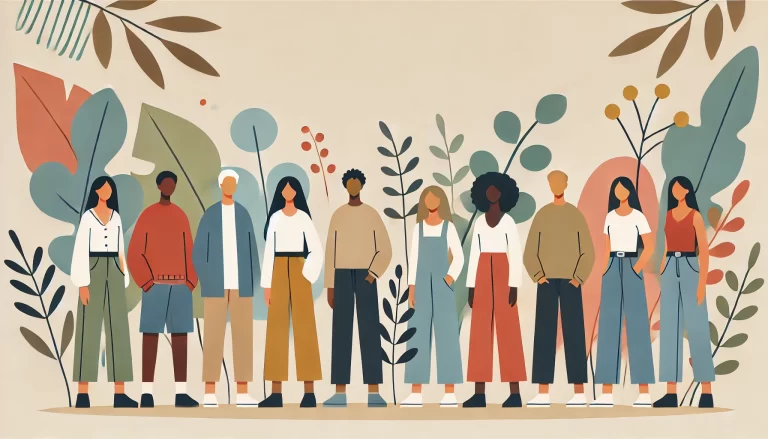Breaking Barriers & Building Bridges: How to Help Men Thrive in America
The challenges facing men today are staggering. Three in four men struggle with mental health issues, yet almost half remain silent about their battles. Men are nearly four times more likely to die by suicide than women, and one in five men report feeling isolated in their personal lives. Cultural norms teach men to suppress emotions, avoid vulnerability, and project strength—even when they’re struggling internally.
These pressures often lead to isolation, as many men hesitate to seek support out of fear of judgment or being seen as weak. Encouraged to choose majors and careers based on safety and financial stability rather than their passions or natural talents, many struggle through college, frequently changing majors, accumulating debt, and ultimately entering careers they don’t truly desire.
The pressure to climb the workforce ladder as the ultimate measure of success often results in men trading their calling for a career, leaving them disconnected from their true purpose.
The result? A cycle of burnout and discontent, as men settle for stability over significance.
But the most alarming part is that this cycle doesn’t stop with men—it’s passed down to the next generation. Boys and young men often mirror the behaviors they see modeled by the male figures in their lives. When they witness fathers, brothers, and mentors suppress their struggles, avoid asking for help, and prioritize stability over fulfillment, they internalize the message that this is what it means to be a man.
This phenomenon can be classified as a set of hidden barriers—the internal struggles that remain unspoken, undiagnosed, and untreated. Unlike external challenges that can often be identified and addressed, these hidden barriers intensify in silence. Self-doubt, unresolved trauma, and limiting beliefs take root, shaping how men see themselves and the world around them. Left unaddressed, these barriers influence every decision, from career choices to relationships, and create a ripple effect that impacts families and communities for generations.
Over time, boys learn to bury their emotions, silence their ambitions, and settle for far less than their full potential—perpetuating the same cycle of disconnection and dissatisfaction. Hidden barriers don’t just limit what men can achieve; they shape what men believe they are allowed to achieve. And without intentional intervention, this cycle of suppressed struggles continues to undermine men’s well-being and potential throughout their lives.
the Full Spectrum of Challenges
The cycle of hidden barriers is amplified when combined with external, systemic challenges, creating even greater hurdles for men facing economic hardships. External barriers—the visible, tangible obstacles like financial instability, systemic inequities, and limited access to resources—are the ones we most often recognize. These include inequities in education, discriminatory hiring practices, and a lack of affordable housing. However, when these external barriers intersect with internal, hidden struggles such as self-doubt and unresolved trauma, the path to success becomes even more unattainable.
While challenges affect men from all walks of life, they are far more severe for those facing economic hardships. Boys raised in low-income households are significantly more likely to experience material hardships, such as food insecurity and inadequate housing. Additionally, children living with single mothers are more likely to live in poverty compared to those in two-parent families.
Systemic inequities amplify these obstacles, leaving many men without access to the resources or opportunities needed to thrive. Black males, in particular, have the lowest graduation rates, the highest unemployment rates, the highest mortality rates, the highest poverty rates, and the highest incarceration rates in America.
These challenges are not accidental. They are the product of generations of systemic inequity—policies and practices that were designed to benefit some while creating barriers for others.
The Curb Cut Effect
When systems are redesigned to help the most vulnerable, the benefits ripple outward, improving conditions for everyone. This is the Curb Cut Effect in action.
Curb cuts—small ramps built into sidewalks—were created to assist people with disabilities. Today, parents with strollers, delivery workers, travelers with luggage, and countless others benefit from their design. Similarly, closed captioning was developed for the deaf community but is now widely used in education, social media, and entertainment. Even texting, once a tool for the deaf and hard of hearing, has become an indispensable part of communication for billions.
By focusing on empowering men facing the greatest economic barriers, we not only uplift those who are most vulnerable, but we also create pathways that benefit entire communities.
The Reinvention Impact Model
True empowerment requires more than surface-level solutions. It demands an intimate and intentional approach—one that addresses both the external, systemic barriers men face and the internal, hidden struggles they rarely talk about. The Reinvention Impact Model bridges these gaps by helping men break free from limiting beliefs that uphold restrictive societal norms, articulate their needs, equip them with tools to advance economically, and empower them to take meaningful action.
It begins with seven transformative questions that spark a journey of self-discovery, vulnerability, bravery, and leadership:
- Who am I?
- Why am I here?
- What can I do?
- Who needs my help?
- Where am I going?
- How will I get there?
- What do I need to overcome?
These questions form the foundation of the Reinvention curriculum, a seven-principle framework that helps men transform their mindset, break through barriers, turn their skills into assets, and create a future of impact and fulfillment.
The 7 Principles of Reinvention
The Reinvention curriculum is built on seven principles that address both internal struggles and external challenges:
- Identity: Helping men define who they are beyond societal labels.
- Purpose: Guiding men to discover their unique calling.
- Power: Unlocking hidden talents and strengths.
- People: Become servant leaders by building strong, supportive relationships.
- Perception: Reframing how men see themselves and their opportunities.
- Productivity: Equipping men with discipline and work ethic.
- Perseverance: Developing resilience to overcome setbacks.
Turning Principles Into Action
The principles are designed to empower men to become self-sufficient, goal-oriented, and courageous leaders who assertively take initiative to shape their lives, fostering not only economic opportunity but across multiple areas of life.
- Education and Workforce Development: Learning to choose a career path aligned with your calling; exploring how skills, abilities, job training, and work experiences contribute to pursuing purpose-driven work. Gaining foundations in entrepreneurship, negotiation, and a service-driven approach to selling, alongside study skills and academic success strategies.
- Wealth Building: Starting with financial literacy, money management, and debt reduction, progressing to investing, asset-building, and homeownership to create pathways toward financial independence and generational wealth.
- Social Capital: Building networking skills, personal branding, and effective communication to expand opportunities and influence. Learning how to build and maintain strong relationships, manage and diffuse conflicts, and apply strategies for reconciliation.
- Mental and Emotional Health: Addressing internal struggles often overlooked or undiagnosed among men, such as anxiety, depression, emotional surpression, lonliness, perfectionism and trauma. Building emotional resilience and stability to thrive in personal and professional environments.
- Personal Leadership: Developing tools for goal-setting, prioritization, and time management to enhance productivity and create structure in daily life.
- Fatherhood and Family Engagement: Strengthening the ability to lead families with purpose, including role-setting, generational planning, and managing stress and conflict in the home. Applying marital and parenting counseling techniques to foster healthier relationships.
- Health and Wellness: Focusing on physical fitness, balanced nutrition, and substance abuse prevention to maintain strength, vitality, and overall well-being. Emphasizing the benefits of natural medicines and holistic approaches to health, while teaching the importance of growing your own food to foster self-sufficiency and a deeper connection to sustainable living. Encouraging preventive care, regular physical activity, and mindfulness practices to support long-term mental and physical health.
Transforming Lives, Establishing Legacies
Empowering men to overcome both internal and external barriers creates a ripple effect that reshapes families, communities, and entire systems. When men are equipped with the tools to address hidden struggles and systemic challenges, the changes are both extensive and generational.
This empowerment prevents the destructive cycles that hold men back:
- Substance Dependence: By addressing mental health struggles and teaching healthier coping mechanisms, men can break free from reliance on substances as a way to escape pain.
- Incarceration: Providing tools for emotional regulation, economic opportunity, and conflict resolution reduces behaviors that often lead to incarceration, keeping men in their homes and communities.
- Chronic Health Problems: With a focus on physical fitness, nutrition, and overall wellness, men can avoid preventable diseases and live longer, healthier lives.
- Enhanced Conflict Resolution: Empowering men with emotional resilience, conflict management skills, and economic opportunities, men learn how to navigate disagreements constructively, reducing interpersonal tensions in both personal and professional settings, reducing violence in communities, creating safer, more stable environments for everyone.
At the same time, this approach actively promotes powerful, life-changing outcomes:
- Emotional Resilience and Improved Mental Health: Men gain the confidence and clarity to face life’s challenges head-on, developing the strength to overcome adversity and lead with courage. They learn tools to effectively manage anxiety, depression, and trauma, fostering long-term emotional well-being.
- Career Fulfillment: Men align their unique gifts, skills, and abilities with their life’s calling and purpose, transitioning from draining jobs to work that inspires and sustains them.
- Financial Stability: By mastering financial literacy and wealth-building strategies, men achieve independence and create generational wealth, lifting their families out of poverty and fostering long-term financial security.
- Stronger Families: Empowered men become more present and engaged as fathers, husbands, and mentors, fostering healthier family dynamics and breaking cycles of dysfunction.
- Self-Sufficiency: Men develop the skills and confidence to take charge of their lives, cultivating independence and the ability to provide for themselves and their families.
- Community Leadership: Empowered men break cycles of dysfunction, take on leadership roles in their communities, inspire and mentor others, and set positive examples for the next generation.
- Cultural Impact: The program fosters a shift in how masculinity is viewed, challenging toxic norms while encouraging vulnerability, compassion, and balance in men’s lives and relationships.
A Vision for the Future
We seek to change the hearts of men, helping them reclaim their strength, rewrite their stories, and rise above the hidden landmines they face in America. Systemic challenges, once seemingly unshakable, begin to crumble under the weight of courage, action, and change.
By focusing on those who face the greatest hurdles, we lay a foundation for a future where opportunity is not a privilege but a promise. This is how legacies are rebuilt—one man, one breakthrough, one generation at a time.






